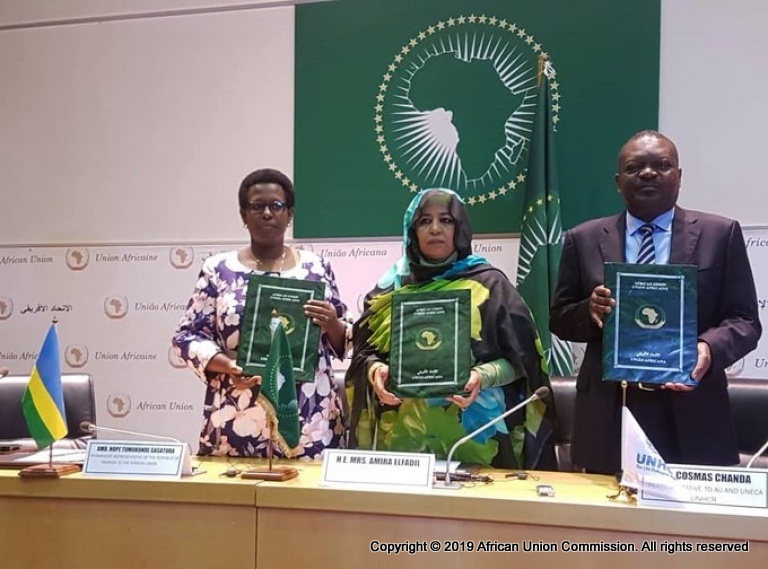AU, Government of Rwanda and UNHCR in joint rescue of asylum seekers and refugees in Libya
AU, Government of Rwanda and UNHCR in joint rescue of asylum seekers and refugees in Libya
June 07, 2025

Out of the 55,665 refugees and asylum-seekers registered with the United Nations High Commissioner for Refugees (UNHCR), 4 700 persons of concern are currently estimated to be held in dire conditions inside detention centres in Libya. They urgently need to be moved to safety and to be provided with protection, lifesaving assistance, and durable solutions.
Due to the deteriorating security situation in and around the Libyan capital of Tripoli, on 10 September 2019, the African Union, the Government of the Republic of Rwanda and UNHCR signed a Memorandum of Understanding to set up an Emergency Transit Mechanism (ETM) for evacuating refugees and asylum seekers out of Libya. This followed the generous offer made by the President of the Republic of Rwanda, H.E. Paul Kagame in November 2017, and the decision of the AU, European Union (EU), and United Nations (UN) to put in place a joint Task Force to save and protect the lives of refugees and migrants along migratory routes and in particular, inside Libya
The ETM, which aimed at responding to the emergency protection needs of refugees, asylum-seekers, children and youth-at-risk, will be established under the overall auspices of the African Union Commission with leadership by Rwanda of the Special Technical Committee of the AU on Migration, Refugees and Displaced Persons, in line with the 1969 OAU Refugee Convention and the 2019 AU Theme of the Year.
As per the joint agreement, a first group of 500 persons in need of international protection will be evacuated. The group is principally made up of people originating from the Horn of Africa and includes children and youth at risk. After their arrival, UNHCR will continue to pursue solutions for the evacuees. While some may benefit from resettlement to third countries, others will be helped to return to countries where asylum had previously been granted, or to return to their home countries if it is safe to do so. Some may be given permission to remain in Rwanda subject to agreement by the competent authorities.
Meanwhile, following the signature of the MoU on the Establishment of the Emergency Transit Mechanism in Rwanda for Refugees and asylum-seekers, a total of 190 persons of concern have so far been evacuated from Libya to Rwanda in two phases.
UNHCR has evacuated more than 4,400 persons of concern out of Libya to other countries since 2017, including 2,900 through the Emergency Transit Mechanism in Niger and 425 to European countries through the Emergency Transit Centre in Romania.
- Share:
- Français









